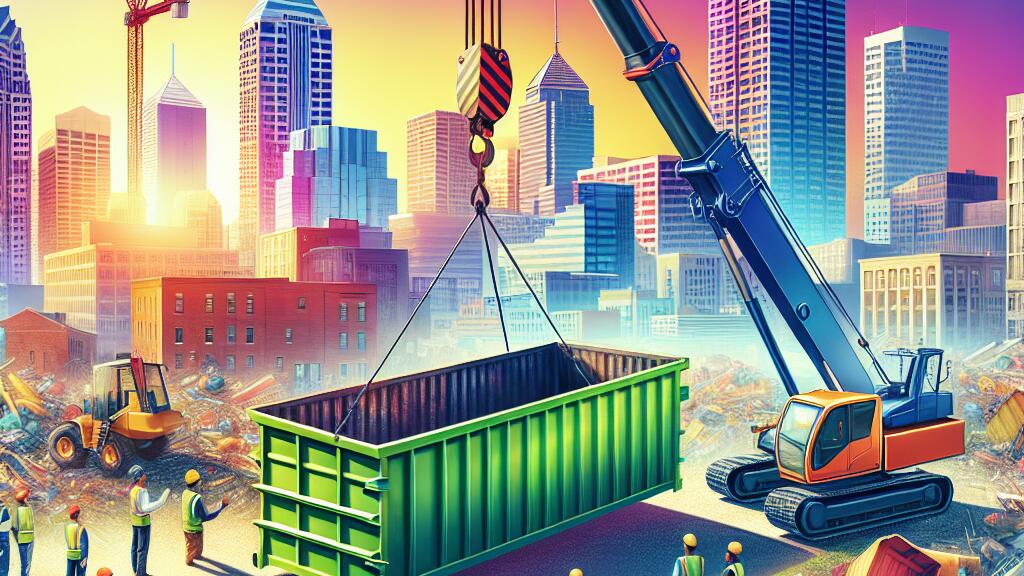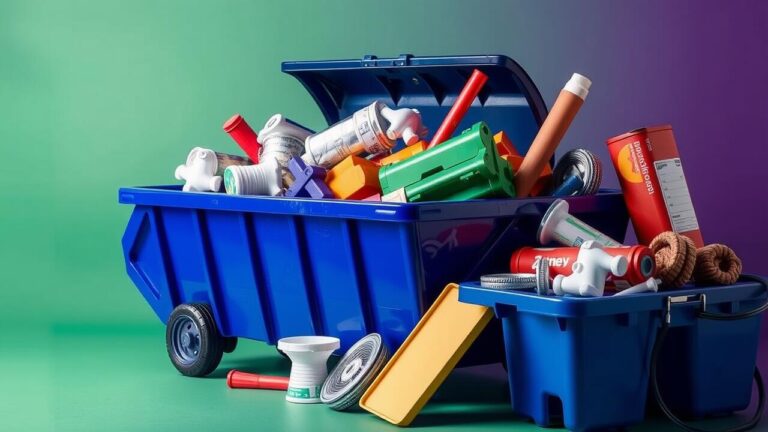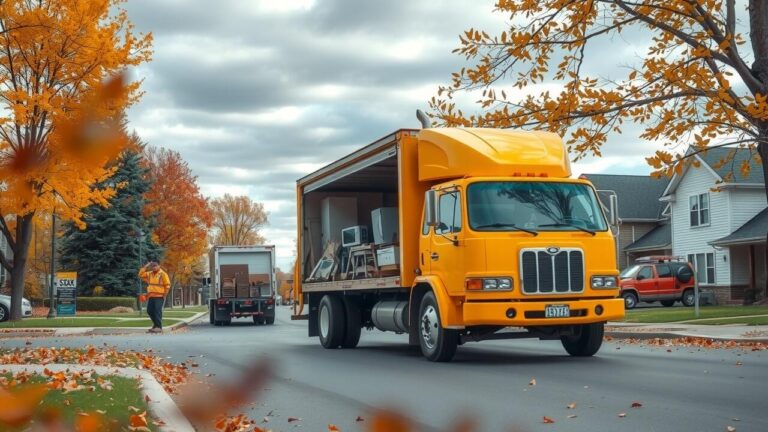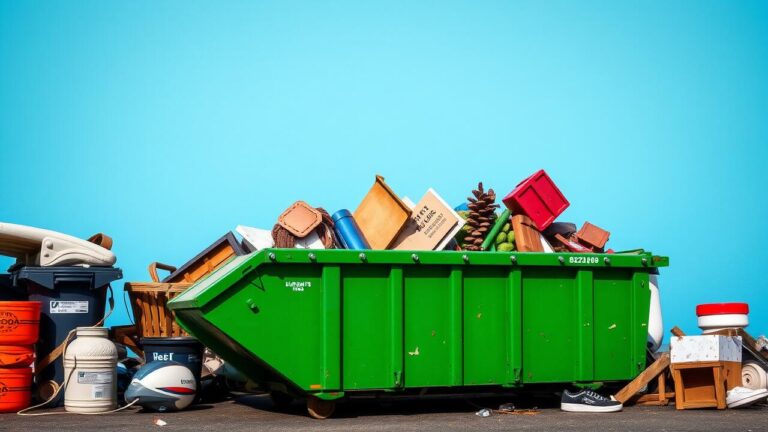Why Roll-off Dumpsters are Essential for Construction Sites
Environmental Impact of Construction Waste
Construction waste poses significant environmental challenges, contributing to landfill overcrowding and pollution. The materials discarded can include wood, metal, concrete, and hazardous substances. When improperly disposed of, these materials can leach toxic chemicals into the soil and groundwater, leading to long-term ecological damage. Additionally, construction activities often generate an excessive amount of debris, exacerbating the strain on waste management systems and diminishing natural resources.
The impact of construction waste extends beyond the immediate site. Landfills are filling up quickly, and many areas struggle to find suitable locations for new landfill operations. This not only increases transportation costs but also elevates greenhouse gas emissions from waste transportation and decomposition. Implementing effective waste management practices is necessary to mitigate these effects, encouraging sustainable construction methods and responsible disposal techniques.
How Rolloff Dumpsters Promote Recycling
Roll-off dumpsters play a crucial role in facilitating recycling efforts on construction sites. By providing designated containers for different types of materials, such as concrete, metal, and wood, they help ensure that recyclable items are not mixed with general waste. This separation is vital for effective recycling processes, as it minimizes contamination and enhances the efficiency of material recovery. Having these dumpsters readily available encourages contractors and laborers to prioritize recycling, leading to increased diversion rates from landfills.
Additionally, roll-off dumpsters simplify the logistics of waste management, making it easier for construction teams to maintain an organized site. The convenience of having large containers on-site allows crews to sort materials immediately, preventing valuable resources from being discarded improperly. Many waste management companies offer specialized recycling programs for construction debris, which can further incentivize the use of roll-off dumpsters. As a result, these dumpsters not only streamline waste disposal but also promote a culture of sustainability within the industry.
Renting vs. Purchasing Dumpsters
Construction projects often require significant waste management, leading many to consider their options for dumpster use. Renting a roll-off dumpster provides flexibility, catering to the varying needs of different projects. This approach allows construction companies to select the right size and type of container based on project duration. Additionally, rental agreements typically include maintenance and pickup services, which saves time and effort.
On the other hand, purchasing a dumpster may be more suitable for businesses that frequently undertake extensive construction work. Ownership provides convenience, eliminating the need for repeated rentals. However, this option comes with higher upfront costs and the responsibility for maintenance and compliance with regulatory standards. Weighing these factors helps organizations make an informed decision that aligns with their operational needs and budget constraints.
Pros and Cons of Each Approach
Renting a roll-off dumpster offers flexibility and convenience for construction projects of various scales. It eliminates the upfront costs associated with purchasing, allowing businesses to allocate funds to other pressing needs. Renting also provides access to a variety of dumpster sizes, ensuring that contractors can choose the most suitable option for their specific project requirements. However, there might be hidden costs associated with rental agreements, such as overage fees for exceeding weight limits or additional charges for extended rental periods.
On the other hand, purchasing a dumpster might be a wise investment for companies that frequently undertake construction projects. Ownership eliminates ongoing rental fees and allows for more consistent availability. However, the initial investment can be substantial, alongside responsibilities for maintenance and repairs. Furthermore, purchasing may not be ideal for companies with fluctuating project volumes, as owning a dumpster can lead to unnecessary storage costs during downtime. Balancing these factors is essential for making an informed decision that supports budget and operational needs.
Compliance with Local Regulations
Construction projects are often subject to a myriad of local regulations that dictate how waste should be managed. Compliance with these guidelines is critical not only to avoid fines but also to ensure the safety of workers and the surrounding community. Each jurisdiction may have specific rules concerning the type of materials that can be disposed of, the requirements for hazardous waste disposal, and the stipulated timelines for waste removal. Failing to adhere to these regulations can result in significant legal and financial repercussions for contractors and developers.
Navigating local laws can be complex, especially as they may vary significantly from one area to another. Having roll-off dumpsters on-site can help streamline compliance by providing a designated space for waste that is easy to manage and monitor. It is essential for construction teams to stay informed about current regulations and work closely with dumpster rental companies that are knowledgeable about local disposal laws. This partnership can facilitate a smoother waste management process and help ensure that all waste is disposed of in accordance with the law.
Understanding Waste Disposal Laws
Construction sites generate a significant amount of waste, making it crucial to adhere to local regulations regarding its disposal. Municipalities usually have specific laws that dictate how different types of waste must be managed. For instance, hazardous materials require special handling and disposal methods that differ from routine debris. Failing to comply with these regulations can lead to hefty fines and even legal repercussions for contractors.
Understanding these laws is not just about avoiding penalties, but also about ensuring environmental protection. Many areas have guidelines designed to promote recycling and proper waste segregation. By familiarizing themselves with local waste disposal guidelines, contractors can implement strategies that minimize their ecological footprint while maximizing compliance. This knowledge also enables them to educate their teams on proper disposal practices, fostering a culture of responsibility on site.
Maintenance of Rolloff Dumpsters
Keeping roll-off dumpsters in good condition requires regular maintenance to ensure they function properly and adhere to safety standards. It is essential to inspect the dumpsters frequently for any signs of damage or wear, including rust, punctures, or issues with the wheels. Addressing these problems promptly can prevent larger issues down the road. Additionally, routine cleaning helps to minimize odors and avoid attracting pests, contributing to a more pleasant job site.
Proper usage practices also play a vital role in the maintenance of roll-off dumpsters. It is crucial to avoid overloading, as doing so can lead to structural damage and complicate the removal process. Placing debris in a manner that distributes weight evenly enhances stability and reduces strain on the dumpster. Educating workers about these best practices can significantly extend the life of the dumpster while ensuring compliance with safety regulations.
Best Practices for Keeping Dumpsters Clean
Regular maintenance is crucial for keeping roll-off dumpsters clean and functional. Ensuring that the containers are emptied and serviced often prevents the buildup of debris and odors. Scheduling frequent pickups can also help maintain cleanliness on construction sites. Employees should be trained to dispose of waste properly, avoiding contamination of recyclable materials. Providing clearly labeled bins for different types of waste can simplify the disposal process, making it easier for everyone on site to comply with recycling practices.
Another effective approach involves conducting routine inspections of the dumpsters. This practice allows for the early identification of any issues, such as leaks or damage. Keeping the dumpsters dry and free from excess materials reduces the risk of pests while also minimizing unpleasant smells. After a dumpster is emptied, a quick wash with environmentally-friendly cleaning solutions can eliminate unpleasant residues. These steps contribute to maintaining a hygienic environment on site and support the overall safety and efficiency of the construction process.
FAQS
What are roll-off dumpsters?
Roll-off dumpsters are large, open-top containers designed for the temporary storage of waste and debris during construction projects. They are typically delivered on a truck and can be easily rolled off for placement at the job site.
Why are roll-off dumpsters important for construction sites?
Roll-off dumpsters are essential for construction sites as they provide a convenient and efficient way to manage construction waste, promote recycling efforts, and ensure compliance with local waste disposal regulations.
How do roll-off dumpsters promote recycling?
Roll-off dumpsters can be designated for specific types of materials, such as wood, metal, or concrete, making it easier to separate and recycle materials. This helps reduce landfill waste and encourages sustainable practices in the construction industry.
Should I rent or purchase a roll-off dumpster for my construction project?
The decision to rent or purchase a roll-off dumpster depends on the size and duration of your project. Renting is often more cost-effective for short-term projects, while purchasing may be beneficial for larger, ongoing operations.
What are the best practices for maintaining roll-off dumpsters on construction sites?
Best practices for maintaining roll-off dumpsters include regularly checking for damage, ensuring they are kept clean and free of debris, and following local regulations for waste disposal. Proper maintenance helps extend the life of the dumpster and promotes a safe working environment.







